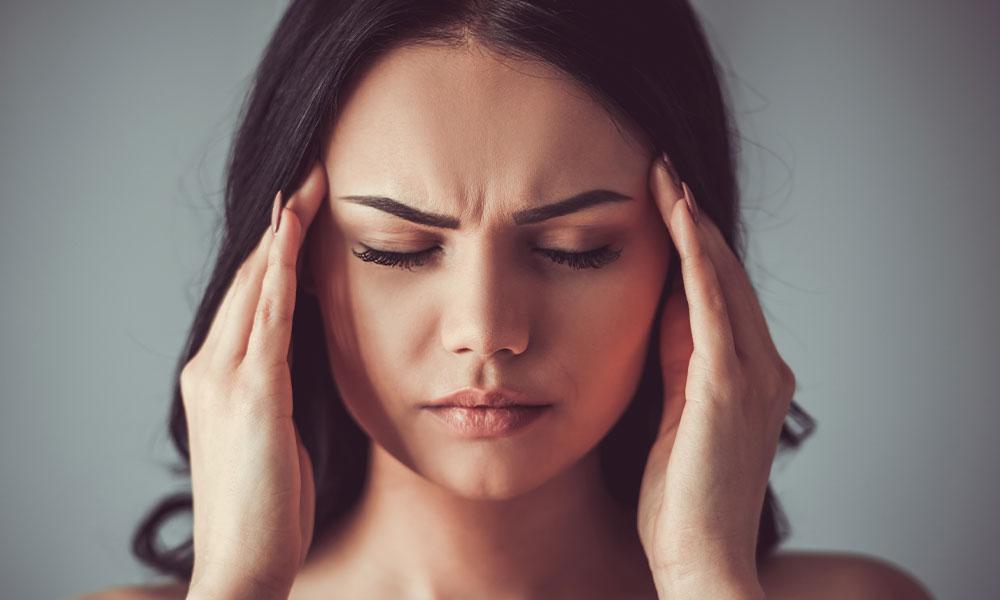Headaches are a common ailment that can range from mild discomfort to debilitating pain. Migraines, in particular, can significantly impact one’s quality of life. Understanding the causes and effects of headaches is essential for effective management and finding relief.
In this comprehensive guide, we will explore the various factors that contribute to headaches, delve into the effects they can have on individuals, and provide five natural remedies that can help alleviate migraine symptoms.
Causes of Headache:
Stress: Stress is a leading cause of tension headaches and migraines. Emotional and physical stress can trigger muscle tension and result in head pain. Managing stress through relaxation techniques, such as deep breathing exercises, meditation, or engaging in hobbies, can help alleviate tension and prevent migraines.
Hormonal Changes: Hormonal fluctuations, especially in women, can play a role in triggering migraines. Many women experience migraines during their menstrual cycle or as a result of hormonal medications. Tracking hormonal patterns and working with a healthcare professional to manage hormone levels can help reduce the frequency and intensity of migraines.
Dietary Triggers: Certain foods and drinks can act as triggers for migraines in susceptible individuals. Common dietary triggers include processed foods, caffeine, alcohol, and artificial sweeteners. Keeping a headache diary and identifying potential triggers can help individuals make informed dietary choices and minimize the risk of migraines.
Environmental Factors: Environmental stimuli can also trigger headaches, particularly migraines. Strong smells, bright lights, loud noises, and changes in weather are common triggers. Creating a soothing environment, wearing sunglasses outdoors, and using earplugs in noisy settings can help reduce exposure to environmental triggers.
Lack of Sleep: Inadequate sleep or irregular sleep patterns can contribute to the development of headaches. Both insufficient sleep and excessive sleep can be potential triggers. Establishing a consistent sleep routine, prioritizing quality sleep, and ensuring a restful sleep environment can reduce the frequency and severity of migraines.
Effects of Headache:
Pain and Discomfort: Headaches can cause varying degrees of pain, ranging from mild to severe. The pain can be throbbing, pulsating, or constant, depending on the type of headache. Finding ways to manage pain, such as applying cold or warm compresses, practicing relaxation techniques, or using over-the-counter pain relievers, can provide relief.
Sensitivity to Light and Sound: Many individuals with headaches, particularly migraines, experience increased sensitivity to light (photophobia) and sound (phonophobia) during an episode. Creating a calm and dimly lit environment, using blackout curtains, and wearing sunglasses can help reduce discomfort.
Nausea and Vomiting: Migraines often come with gastrointestinal symptoms like nausea and vomiting. These symptoms can further exacerbate discomfort and affect daily functioning. Managing nausea through small, frequent meals, staying hydrated, and avoiding trigger foods can provide relief.
Fatigue and Weakness: Headaches, especially migraines, can leave individuals feeling fatigued and weak even after the pain subsides. Resting in a quiet, comfortable environment, practicing relaxation techniques, and maintaining a balanced diet can help combat fatigue and regain energy.
Disturbed Focus and Concentration: Headaches can impair cognitive function, making it challenging to concentrate, focus, or perform daily tasks effectively. Taking regular breaks, practicing mindfulness exercises, and creating a quiet workspace can help improve focus and productivity.
Natural Remedies for Migraine:
Stay Hydrated: Dehydration can trigger migraines, so it’s important to drink plenty of water throughout the day to maintain proper hydration. Herbal teas, infused water, and electrolyte-rich beverages can also be beneficial.
Manage Stress: Stress reduction techniques, such as deep breathing exercises, meditation, yoga, or engaging in hobbies, can help alleviate tension and prevent migraines. Regular exercise, sufficient sleep, and seeking support from loved ones can also contribute to stress management.
Maintain a Regular Sleep Schedule: Establishing a consistent sleep routine, getting enough sleep, and ensuring a restful sleep environment can reduce the frequency and severity of migraines. Avoiding stimulants like caffeine or electronic devices before bedtime can promote better sleep quality.
Practice Relaxation Techniques: Engaging in relaxation techniques like progressive muscle relaxation, guided imagery, or aromatherapy can provide relief from migraines and promote overall well-being. Experimenting with different relaxation methods and finding what works best for you can enhance the effectiveness of these techniques.
Identify and Avoid Triggers: Keeping a headache diary to identify potential triggers, such as specific foods, drinks, or environmental factors, is essential. Once identified, try to avoid or minimize exposure to these triggers. It may be helpful to seek professional advice from a healthcare provider or nutritionist to develop a personalized plan.
While these natural remedies can be effective for some individuals, it’s important to note that everyone’s experience with headaches is unique. If headaches persist, worsen, or significantly impact your daily life, it is advisable to consult with a healthcare professional for proper evaluation and guidance. They can provide a thorough assessment, offer personalized treatment options, and address any underlying conditions that may be contributing to your headaches.
Remember, taking steps to manage and prevent headaches is key to finding relief and improving your quality of life. By understanding the causes, effects, and implementing natural remedies, you can empower yourself to better manage migraines and enjoy a life with fewer headaches.



